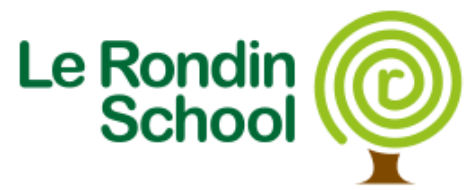At Le Rondin School we recognise the Arts as an essential form of expression and the importance for every child to experience cultural and artistic activities as part of a broad and balanced curriculum.
The Arts can enhance the well-being and communication needs of our children as well as providing opportunities to celebrate their uniqueness and diversities and that of others. The Arts curriculum promotes the school ethos and vision of placing pupils first and facilitating joyous and purposeful learning.
The intent is for all pupils at Le Rondin to use the formal elements through a range of materials and processes to communicate what they see, feel and think. The children are able to use sensory exploration to gain knowledge and understanding of the world in which they live. Through the arts activities they learn to make informed judgements and aesthetic and practical decisions, becoming actively involved in shaping environments and experiences. Children develop their interest and curiosity about the arts through lessons offering skills progression, knowledge progression and offering children the opportunity to ask questions and demonstrate their skills in a variety of ways. They learn about the diverse roles and functions of art, craft and design in their life, locality and the historical impact on wider society, cultures and times. We provide experiences of gallery exhibitions, music and drama performances and communicate and work alongside visiting artists to contextualise art within the world of work. The children participate in many community art projects, which helps them to understand that appreciation and enjoyment of the visual arts have the power to enrich public lives and promote positive mental health and well-being
